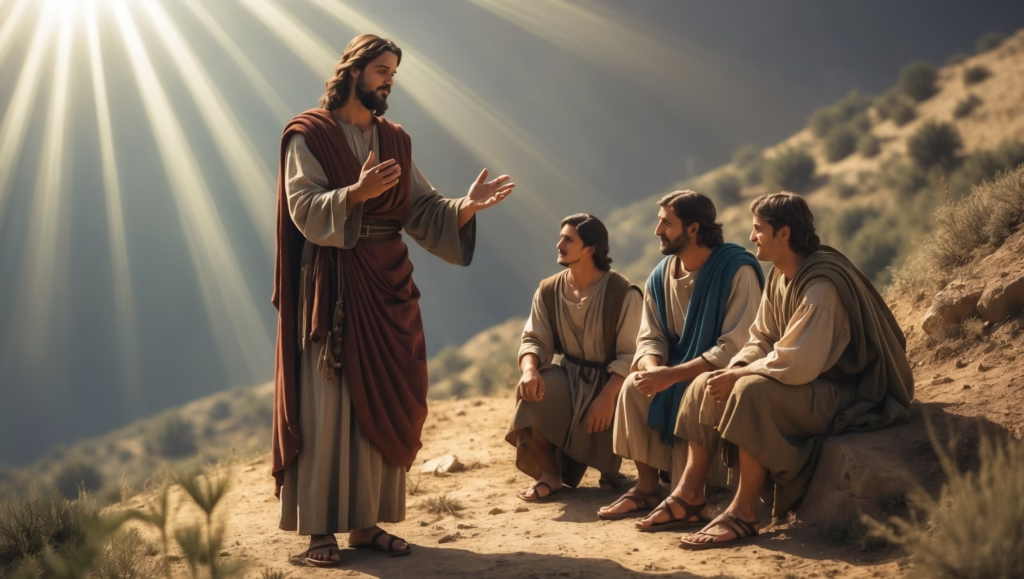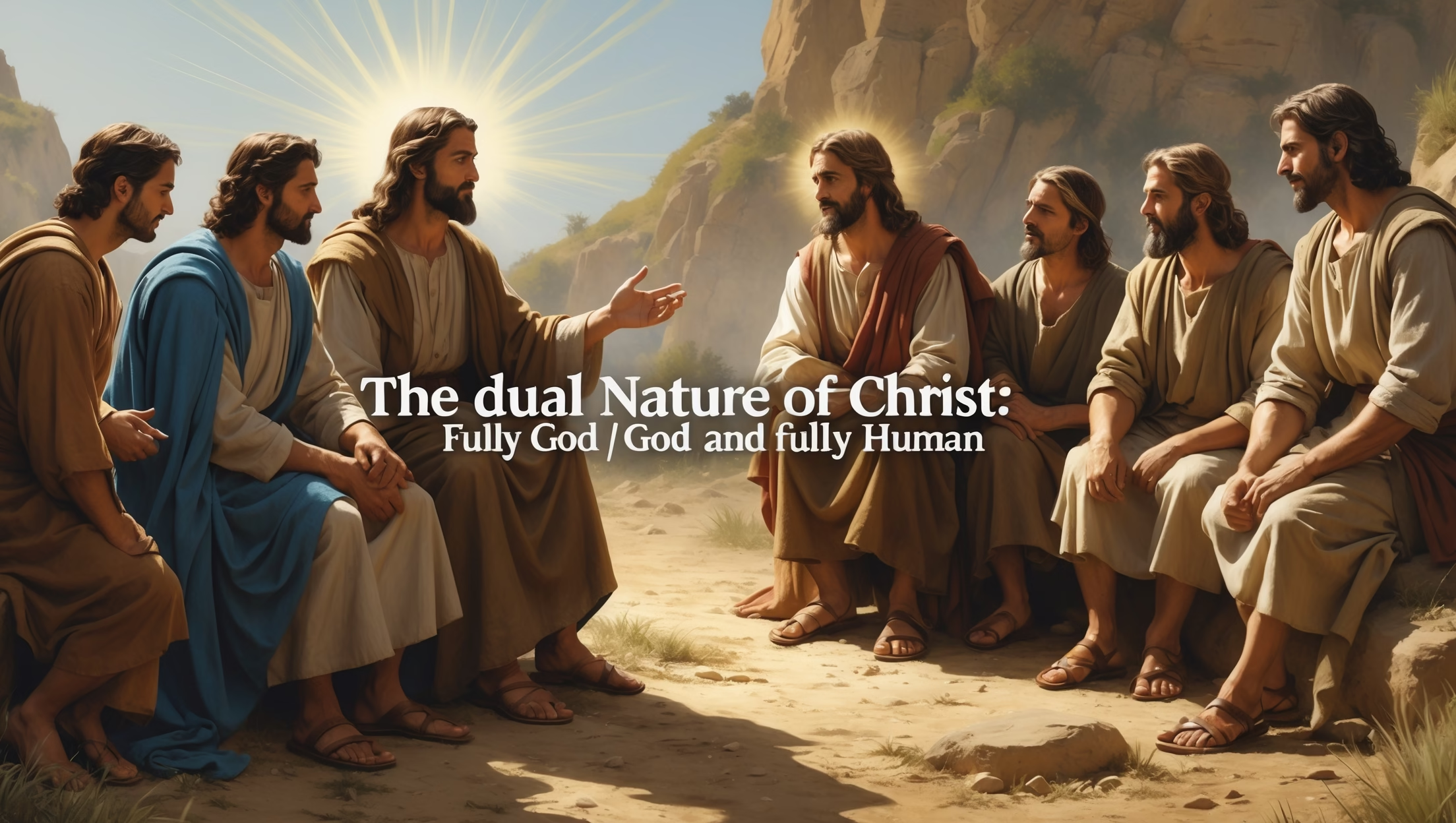The Central Paradox of Christianity
The incarnation of Jesus Christ is the most profound and breathtaking mystery in the Christian faith. It declares that the eternal Creator entered His own creation, that the One who spoke galaxies into being took on flesh and walked dusty roads. This is not abstract philosophy or theological speculation—it is biblical revelation, witnessed in history, and carrying eternal implications for salvation, worship, and the way we live today.
The central claim is staggering: in the one person of Jesus Christ exists two complete and unconfused natures—fully God and fully man. This is the Hypostatic Union, affirmed by the early church at the Council of Chalcedon (AD 451) and rooted deeply in the New Testament witness.

Biblical Evidence of Christ’s Divinity
Jesus was not merely a moral teacher or miracle worker. The Gospels and epistles present Him as God incarnate—possessing divine attributes, exercising divine authority, and receiving divine worship.
Eternal Pre-Existence
“In the beginning was the Word, and the Word was with God, and the Word was God.” — John 1:1
Jesus does not simply appear in history; He exists before it. He claims the divine name, “Before Abraham was, I am” (John 8:58), echoing God’s self-identification to Moses in Exodus 3:14. Paul affirms that “He is before all things, and in Him all things hold together” (Colossians 1:17).
Divine Attributes
Jesus demonstrates attributes that belong only to God:
- Omniscience — He knows what is in people’s hearts and minds (John 2:24–25).
- Omnipotence — He commands storms to be still, and they obey (Matthew 8:26–27).
- Sovereignty over life and death — He raises the dead with a word (John 11:43–44).
Acceptance of Worship
Unlike angels or prophets who reject worship (Revelation 19:10; Acts 14:14–15), Jesus receives it without rebuke. The disciples worship Him after He calms the storm (Matthew 14:33). Thomas confesses, “My Lord and my God!” and Jesus affirms him (John 20:28).
Authority to Forgive Sins
In Mark 2:5–12, Jesus forgives a paralytic’s sins before healing him. The scribes are shocked—rightly recognizing that only God can forgive sins. Jesus confirms His divine authority by pairing spiritual forgiveness with visible healing.
Biblical Evidence of Christ’s Humanity
If the Scriptures are clear about Christ’s divinity, they are equally emphatic about His full humanity. The Son of God did not merely appear human—He became flesh (John 1:14), sharing our limitations, emotions, and experiences.
Physical Limitations
Jesus experienced hunger (Matthew 4:2), thirst (John 19:28), fatigue (John 4:6), and physical suffering. His body was not immune to pain or death; He truly endured crucifixion.
Emotional Experiences
He knew joy (Luke 10:21), grief (John 11:35), and anguish (Mark 14:33–34). His tears at Lazarus’ tomb show a God who not only sees human sorrow but enters into it.
Intellectual Growth
Luke 2:52 tells us that Jesus “grew in wisdom and stature, and in favor with God and man.” Though fully divine, He took on the limitations of a human mind, learning and developing within His humanity.
Temptation
Hebrews 4:15 emphasizes that Jesus was “tempted in every way, just as we are—yet without sin.” His temptation in the wilderness (Matthew 4:1–11) was not a staged performance; it was a real test, proving His obedience where Adam failed.
Why the Dual Nature Matters
This doctrine is not an abstract theological puzzle—it is the beating heart of the gospel.
For Salvation
If Jesus were only human, His death might inspire but could not save. As God, His sacrifice has infinite worth; as man, He could stand in our place. Hebrews 2:17 states that “He had to be made like His brothers in every respect” to become a merciful and faithful high priest who could make atonement for the sins of the people.
For Prayer
We do not pray to a distant deity but to a High Priest who knows our struggles firsthand. Hebrews 4:15–16 assures us that we can approach God’s throne with confidence because Christ has walked our path, faced our trials, and understands our weaknesses.
For Discipleship
Jesus models perfect humanity—a life fully surrendered to God. He shows what it means to live without sin, to love without limits, and to obey without hesitation. Following Him is not an impossible ideal but a Spirit-empowered calling to live in His likeness.
Guarding the Tension
Throughout history, the church has had to guard against errors that distort Christ’s nature:
- Denying His divinity (Arianism) reduces Him to a mere teacher and robs the cross of saving power.
- Denying His humanity (Docetism) turns His suffering into an illusion and undermines His identification with us.
- Blending the natures (Eutychianism) or separating them (Nestorianism) distorts the biblical witness that He is fully God and fully man in one person.
Holding the tension is essential. Lose one side, and you lose the gospel.
Living in Light of the Incarnation
The dual nature of Christ is not simply something to believe—it shapes how we live:
- Worship with awe — The One we sing to is the Lord of glory who once hungered and wept.
- Serve with humility — The King of kings stooped to wash feet; so must we.
- Endure with hope — Our Savior understands our weakness yet has conquered sin and death.
The incarnation means God is not far from us. He has walked where we walk, suffered as we suffer, and triumphed where we fail.
Conclusion: The Mystery That Saves
The dual nature of Christ remains a mystery we cannot fully explain—but one we can fully trust. He is the eternal Word made flesh, the Almighty clothed in humanity, the High Priest who both sympathizes and saves.
In Jesus Christ, God has come near. In Him, humanity has been lifted up. And through Him, the infinite has embraced the finite, so that the finite might share in the infinite life of God.









